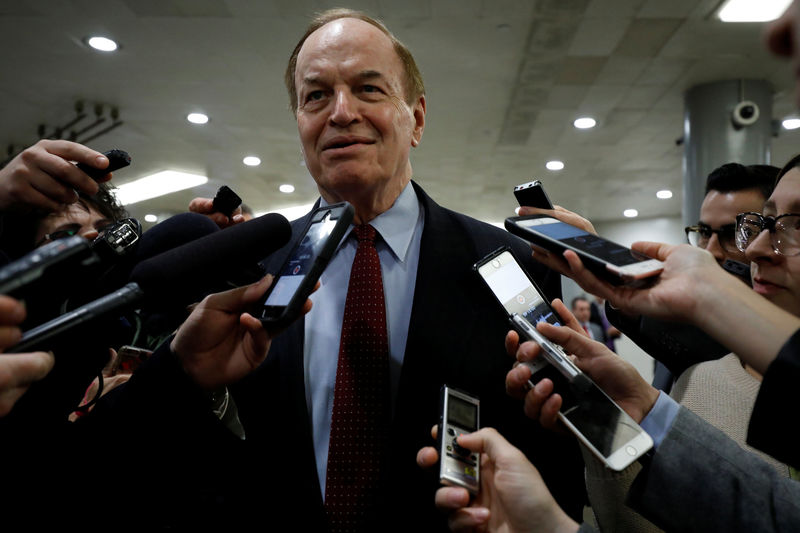By David Morgan and Amanda Becker
WASHINGTON (Reuters) - U.S. Senate Republicans agreed to talks with the House of Representatives on sweeping tax legislation on Wednesday, amid early signs that lawmakers could bridge their differences and agree on a final bill ahead of a self-imposed Dec. 22 deadline.
The Republican-led Senate voted 51-47, along party lines with Democrats opposed, to begin formal conference negotiations to reconcile rival House and Senate tax bills passed last week.
The move, which follows similar House action this week, brings Congress a step closer to sending President Donald Trump a tax overhaul that he can sign into law.
House and Senate negotiators will need to work out differences on issues ranging from business taxes to the repeal of the Obamacare mandate that Americans obtain health insurance or face a penalty before lawmakers can pass a final version.
But John Cornyn, the No. 2 Senate Republican, said he was optimistic House and Senate tax negotiators would be able to work out an agreement within the next two weeks.
"Given the similarities between the House and the Senate bills, I think there are some obvious targets where they need to focus their attention but obviously they won't be rewriting the bills," Cornyn said.
Republican negotiators must be careful not to agree to changes that could diminish support in the Senate, where they can afford to lose support from no more than two party members.
There has been no major tax overhaul since 1986, when Republican Ronald Reagan was president.
While there are significant differences between the House and Senate bills, both would cut the U.S. corporate tax rate to 20 percent from 35 percent, provide tax relief for "pass-through" enterprises including small businesses where earnings are taxed at individual rates, and both benefit the wealthiest Americans and reduce the tax burden for most middle-class taxpayers.
Republicans claim the legislation will spur enough economic growth to pay for the tax cuts with new revenue, but the nonpartisan Joint Committee on Taxation estimates that Senate bill would still add $1 trillion to the federal budget deficit over a decade, even with an economic upswing.
U.S. stock prices have rallied on growing optimism that tax legislation will become law.
DEFICIT WARNING
But on Wednesday, the head of sovereign credit ratings at S&P Global told Reuters that the rising deficit and looser fiscal policy could prompt negative action on U.S. credit ratings unless Washington addressed long-term budgetary issues.
"If U.S. tax reform is approved, it seems certain to increase the federal budget deficit," Moritz Kraemer, S&P's sovereign global chief rating officer, said in an interview.
"A meaningful relaxation of fiscal policy without countervailing measures to address the longer-term fiscal challenges of the U.S. could lead to a negative rating action."
Senate Republicans later voted down a Democratic motion instructing tax negotiators to produce a deficit-neutral bill.
Passage of the tax bill would provide a badly needed legislative victory for Trump and Republicans after their failure earlier this year to enact legislation repealing President Barack Obama's signature healthcare law.
Trump and his Republican allies see enacting the tax overhaul that they promised voters as crucial to their strategy for the 2018 U.S. congressional elections, when all 435 seats in the House of Representatives and 33 seats in the 100-member Senate will be up for election.
Democrats have been united against the bill, calling it a handout to corporations and the rich that would drive up the federal deficit.
In an early sign of progress on reconciling the House and Senate versions, Senator Orrin Hatch, chairman of the tax-writing Finance Committee, said he did not think that the final bill would retain a corporate alternative minimum tax (AMT).
The House bill calls for a repeal of the corporate AMT, which is designed to limit the ability of corporations to reduce their payments through tax breaks and credits. Corporate AMT repeal is not part of the Senate version.
Getting rid of the corporate AMT would be popular with many businesses and would also be a concession toward the House bill.
But repeal would also require lawmakers to replace the $40 billion in revenues that retaining the corporate AMT would raise over a decade. Increasing the corporate income tax target from 20 percent is seen as one way to pay for the AMT repeal and other potential changes.

"I'll keep it at 20 if I can, but there's a drive to get it to 22. They want more money, that’s why," Hatch told reporters.